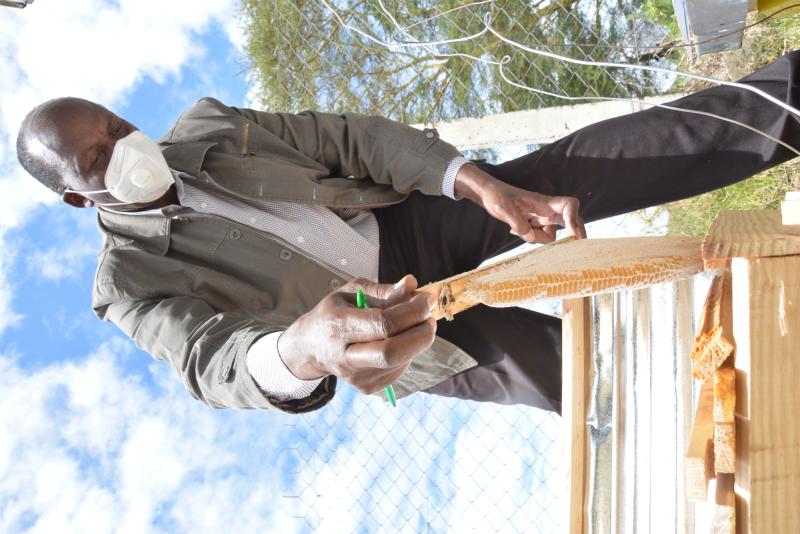×
The Standard e-Paper
Smart Minds Choose Us

The director of Api-culture Institute Dr Remy Tuey explains various types of beehives during a workshop for farmers in KALRO farm in Naivasha. [Antony Gitonga, Standard]
The use of pesticides to control the destructive fall-army-worms in parts of the country has led to mass-deaths of bees.